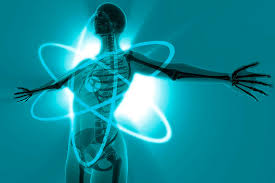Nuclear Medicine
What is Nuclear Medicine?
Nuclear medicine exams are used to examine organ function and blood vessels. A small amount of radioactive material, known as radiopharmaceuticals or isotopes, are used to visualize certain parts of the body such as the intestines and muscles or to trace the functioning of the lungs, kidneys, stomach, colon, endocrine and neurological systems. Nuclear Medicine also helps to diagnose certain tumors, metastatic disease and infections in the body very early in the progression of a disease, such as thyroid cancer, at a time when there may be a more successful treatment.
Preparing for a Nuclear Medicine Exam
Depending on the type of nuclear medicine scan you are having, specific preparation instructions may be necessary. Female patients with any chance of being pregnant will require a pregnancy test prior to examination.
Speak with your physician about this exam or contact us for further instructions.
What should you expect?
Most nuclear medicine studies require the injection of an isotope with an immediate series of images being taken. Depending on the body tissue being examined, taking the images may be delayed by an amount of time specified by the Radiologist. This imaging study is performed while you lie on a comfortable table using an open design, dual-headed camera, known as a gamma camera.
Nuclear medicine procedures require a minimal amount of radiation which the body generally eliminates within 24 hours. Patients are encouraged to drink plenty of water following the scan to help with this process.
When and how will you receive results?
After your procedure, your physician will receive a copy of your report and he or she will contact you with the results of your exam.
Nuclear Medicine exams are performed at:
To schedule an appointment, contact us.

